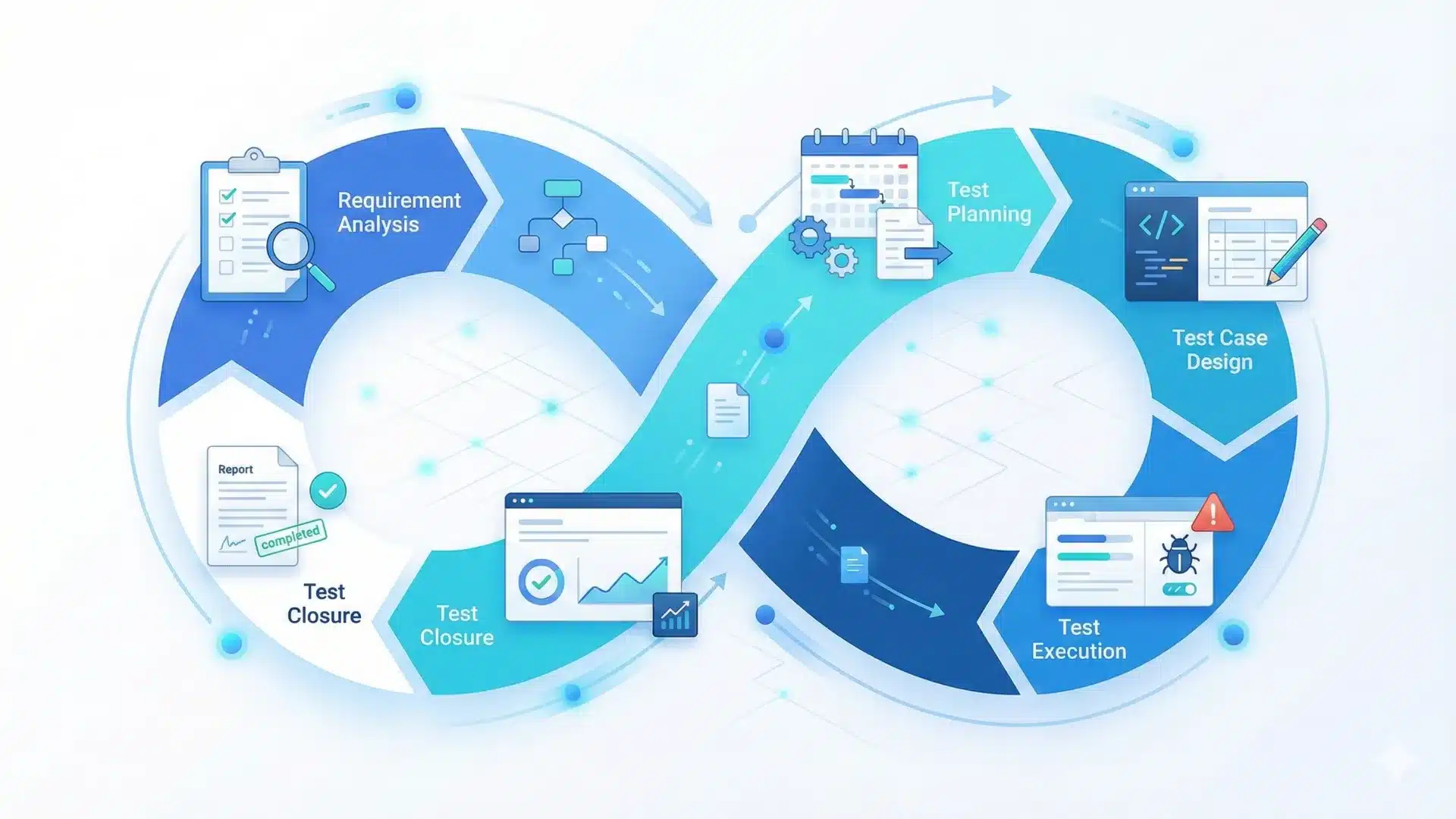Why AI in Cloud Computing is a Game-Changer for Enterprises

AI Generated. Image Credit: Gemini
Table of Contents
- Understanding AI in Cloud Computing
- Key Benefits of AI in Cloud Computing for Enterprises
- Improved Efficiency and Automation
- Enhanced Decision-Making using Data Information
- Scalability and Flexibility
- Strengthened Security
- Cost Savings
- Real-World Applications of AI in Cloud Computing
- Healthcare
- Finance
- Retail
- Manufacturing
- Challenges and Considerations
- The Future of AI in Cloud Computing
- Conclusion
In the fast-paced digital age, companies are always looking for ways to remain in the game, cut costs and increase efficiency. A significant and revolutionary change in the last few years has been the fusion of artificial intelligence (AI) and cloud computing. This new technology is transforming the way companies operate, make decisions, and provide services. In this blog will explore the reasons the use of AI for cloud computing can be a game changer for companies, and highlight its advantages as well as the real-world applications, the problems, and potential for the future.
Understanding AI in Cloud Computing
Before we get into the impact of AI, it’s crucial to know the meaning of AI in cloud computing.
Cloud computing lets companies access computing resources, such as storage, servers and software via the internet, instead of using physical infrastructure. This provides flexibility, scalability, and cost savings.
Artificial Intelligence, on the other hand, refers to computer systems that complete tasks that usually require human brains, like studying information, finding patterns, and making forecasts.
When AI is integrated in conjunction with cloud computing, businesses can handle large amounts of data with efficiency, automate repetitive tasks, and gain insights that can be used in real-time. This combination is the basis for the intelligent cloud, which can be used to drive innovation across different industries.
Key Benefits of AI in Cloud Computing for Enterprises
1. Improved Efficiency and Automation
One of the immediate benefits that AI can provide is that AI Cloud computing has to do with the ability to automate. Companies often face routine tasks like reporting, data entry and system monitoring. Cloud platforms powered by AI can take care of these tasks on their own, allowing employees to focus on their more lucrative tasks.
For instance, AI algorithms can analyze the performance of systems in real time and adapt resources in a dynamic manner. This means that applications and servers can function at maximum capacity without the need for constant human oversight. This means that organizations benefit from more efficient operations, fewer mistakes, and less operational cost.
Custom AI Software Development Solution For Enterprises
2. Enhanced Decision-Making using Data Information
Enterprises create enormous amounts of data each day. Without the proper tools, a significant portion of this data is not utilized. AI in cloud computing allows companies to analyze large amounts of data and gain valuable insights.
For instance, machine-learning models can detect patterns in the behavior of customers or forecast demand. They can also identify irregularities within financial transactions. Through the use of these data, businesses can make informed decisions fast and improve the quality of their services and effectively respond to market shifts.
3. Scalability and Flexibility
One of the advantages of cloud computing is its scalability, the capacity to increase or decrease resources according to demand. When paired with AI, businesses can anticipate patterns of workload and effectively allocate resources.
For instance, an online store can make use of AI to predict spikes in traffic during a sale event and then automatically allocate additional cloud resources to ensure the smooth operation. This guarantees constant performance without the need to spend money on inefficient infrastructure.
4. Strengthened Security
Cybersecurity is an essential problem for businesses. It can enhance security by finding threats in real-time. AI algorithms are able to observe network activity, detect suspicious patterns, and issue alarms before a security breach happens.
Furthermore, AI-powered cloud platforms continually learn from past security breaches and improve their capability to protect against attacks in the future. The proactive security approach minimizes risks, secures sensitive information and establishes confidence with partners and customers.
5. Cost Savings
Incorporating AI in cloud computing could result in significant cost savings. By optimizing resource use, automating routine tasks, and reducing downtime, companies can reduce operational costs.
Furthermore, It can help organizations find gaps in workflows, streamline supply chains and better forecast demand. These improvements lead to better financial planning as well as better returns on investments (ROI) for cloud initiatives.
Real-World Applications of AI in Cloud Computing
AI used in cloud computing isn’t simply a theory; it is being utilized in many industries. Here are some examples:
1. Healthcare
Hospitals and research institutes utilize AI-powered cloud platforms in order to analyze medical records to detect anomalies in scans and forecast diseases that are likely to spread. It can provide the processing and storage capacity required to process massive amounts of data, while AI gives actionable insight to doctors.
2. Finance
Financial institutions and banks rely on cloud computing to aid in fraud detection, credit risk assessment, and customized banking services. AI algorithms analyze transactions in real-time and flag up suspicious transactions, thereby reducing financial loss.
3. Retail
Retailers employ AI using cloud computing in order to control inventory levels, anticipate consumer demand, and offer customized shopping experiences. AI models analyze customer behavior, and the cloud makes sure that information is accessible across a variety of locations and channels.
4. Manufacturing
Manufacturers use this to enhance production lines, identify equipment failures, and control supply chains effectively. Predictive maintenance driven by AI can reduce downtime and increase the efficiency of operations.
Challenges and Considerations
While the benefits are immense, enterprises should be aware of any potential problems when they adopt AI Cloud Computing:
- Security of Data: AI systems require massive datasets, some of which could contain sensitive data. Making sure that data privacy is protected and in compliance with GDPR is crucial.
- Integrity Complexity: Integrating AI into existing cloud infrastructures can be complicated and requires specialized knowledge.
- Price of Implementation: While AI will reduce the cost of long-term implementation, the initial implementation might require significant investments in training and technology.
- Skills Required: Enterprises need skilled staff to manage AI models, interpret the results, and keep systems running smoothly.
Despite these difficulties, proper planning and implementation can reduce the risks and increase the benefits.
The Future of AI in Cloud Computing
Incorporation with AI and cloud computing is still in flux. Future trends are:
- Automated Cloud operations: Cloud platforms may become more efficient in managing themselves by automating resources, detecting problems, and then implementing fixes without the intervention of humans.
- AI-Enhanced Collaboration: Teams from different locations collaborate in real-time by using AI-driven tools to analyze workflows and suggest improvements.
- Edge AI Integration: AI processing at the edges of networks, close to sources of data, will decrease delay and speed up decision-making in real-time.
- Sustainable Cloud Solutions: AI is able to optimize the energy use for cloud computing centers, resulting in more sustainable IT methods.
Businesses that embrace these trends earlier will likely gain competitive advantages, increase efficiency, and provide better service to their customers.
Also read: Cloud Computing for Business: Benefits & Expert Guidance
Conclusion
AI used in cloud computing is not simply a trend in technology. It is a game-changer for companies. By combining the scalability, flexibility, and accessibility of the cloud with the intelligence and automation capabilities of AI, companies can improve their processes, make more intelligent choices in security, and cut costs.
Despite the challenges, businesses that adopt AI-integrated cloud solutions strategically will be able to prosper in a technological and data-driven environment.
The decision to invest in AI to improve cloud computing today isn’t only about keeping up-to-date; it’s about making a difference in the future of business operations.









